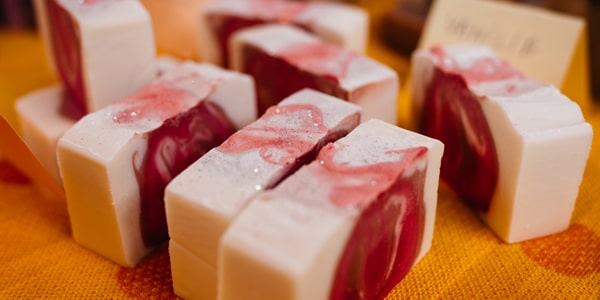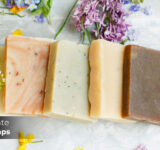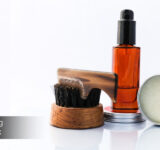- 24/03/2023
- Author
Soap is one of the most used and demanded products in the market of cosmetic industry. Therefore the competition is equally high and needs a good strategy and plans to survive the business. Soap manufacturing is the process of producing soap from raw materials such as fats, oils, and alkalis. The process involves four main stages: saponification, neutralization, coloring and perfuming, and forming and packaging.

Starting a Soap Manufacturing Business requires conducting market research, creating a business plan, obtaining necessary licenses and permits, securing funding, sourcing raw materials, and setting up a production facility.
The soap manufacturing industry has a high demand for its products, and there are many opportunities to differentiate your business by offering unique fragrances and ingredients.
1. Create A Soap Making Business Plan:
Creating a soap-making business plan is critical to starting a successful soap-manufacturing business. It involves several steps, including conducting market research, identifying your target market and competitors, determining your unique selling proposition, developing a marketing and sales strategy, outlining your operations and management, and creating a financial plan.
The business plan should include an executive summary, market analysis, products and services description, marketing and sales strategy, operations and management plan, financial plan, and any supporting documents. Regular review and updates of the plan are essential to ensure its effectiveness as the business grows.
A well-crafted business plan can guide entrepreneurs through the process of starting and growing a profitable soap-manufacturing business.
2. Learn Techniques of Soap Manufacturing:
Learning different techniques of soap manufacturing is important for soap manufacturing businesses to ensure quality control, cost-effectiveness, innovation, flexibility, and safety. Cold-press and hot-press are two soap-making methods with different temperatures and processing times. Cold-press produces a higher quality and moisturizing soap, while hot-press produces a harder soap but may be less moisturizing.
The cold-press method, also known as the cold process method, involves mixing oils and lye at room temperature or lower. While hot-press involves heating the oils and lye together in a pot or Crockpot until the mixture reaches trace. The cure time for the later is less than the previous. Overall, learning various soap-making techniques is critical for the success of soap manufacturing businesses.
3. Procure the Equipment:
The equipment needed for soap manufacturing depends on the chosen soap-making method. Some essential equipment for both cold-press and hot-press methods include a scale for accurate ingredient measurements, mixing bowls and spoons, a soap mold, and safety gear like gloves and goggles to protect against lye burns. For cold-press soap making, a double boiler is necessary to melt oils and butter, and a stick blender to blend ingredients and achieve trace.
For hot-press soap making, a heat source is needed to heat oils and lye. Additional equipment, such as a thermometer to measure temperature or a pH meter to test pH levels, may be required depending on the recipe or method. It’s important to keep all equipment clean to prevent contamination and ensure high-quality soap production.
4. Make Necessary Arrangements:
Making soap requires proper preparation and necessary arrangements to ensure a safe and efficient production process. A clean and sanitized workspace, proper ventilation, safety equipment, and adequate storage space for curing are all necessary arrangements for making soap.
It’s also important to gather all the necessary ingredients and equipment for the chosen soap-making method and have labels and packaging materials ready for marketing the final product. These preparations will help ensure a hygienic and safe production process and allow for the production of high-quality soap that can be effectively marketed.
5. Identify Niche:
Identifying a niche in soap manufacturing is important because it helps a soap maker stand out in a crowded market and cater to a specific audience with unique needs and preferences. A niche can be anything from a specific target demographic, such as individuals with sensitive skin or those interested in eco-friendly products, to a specific scent or ingredient, like lavender or charcoal.
By identifying a niche, a soap maker can tailor their products to the needs and preferences of their target audience, increasing the likelihood of customer satisfaction and repeat business. Additionally, by catering to a specific niche, soap makers can differentiate themselves from competitors and develop a unique brand identity, ultimately helping them to grow their business and succeed in the market.
6. Find Suppliers:
Soap manufacturing requires a range of supplies, including oils, lye, water, fragrances, colorants, and molds. Various suppliers specialize in providing these materials, such as soap-making suppliers, essential oil suppliers, fragrance oil suppliers, colorant suppliers, and packaging suppliers. It’s essential to research and compares different suppliers to find the best quality materials at the most affordable prices.
By doing so, a soap maker can ensure they have all the necessary supplies to produce high-quality soap that meets the needs and preferences of their target audience. Therefore it is important to explore the market to find suitable suppliers that can provide the best and exact ingredients for the manufacturing of soap.
7. Pricing and Marketing your Products:
Pricing and marketing are essential for the success of a soap business. Setting the right price can attract customers while ensuring profitability. A soap maker should carefully consider production costs, target audience, and competition when setting prices. Effective marketing helps promote soap products to potential customers and build brand awareness.
By identifying a niche and targeting the right audience, soap maker can tailor their marketing efforts to reach those most likely to buy their products. This includes creating a strong brand identity, packaging, and labeling, developing an online presence, and utilizing social media and other marketing channels to reach potential customers.
A well-priced and effectively marketed product can attract customers, build brand recognition, and ultimately drive sales and profitability.
Conclusion:
The soap manufacturing business is a very interesting and engaging business. It needs time, research, manpower, and good strategy. Therefore it is beneficial to include a third-party private manufacturing and labeling company like BO international. They manufacture soap products and supply in bulk according to the customization the brand wants.
Private third-party manufacturing can be cost-effective, and scalable, and help ensure quality control for Soap Manufacturers. It also allows them to focus on their core competencies such as product development, marketing, and sales. BO international also has expert and licensed manufacturing techniques, equipment, and ingredients that can make the product unique and reliable in the market.




